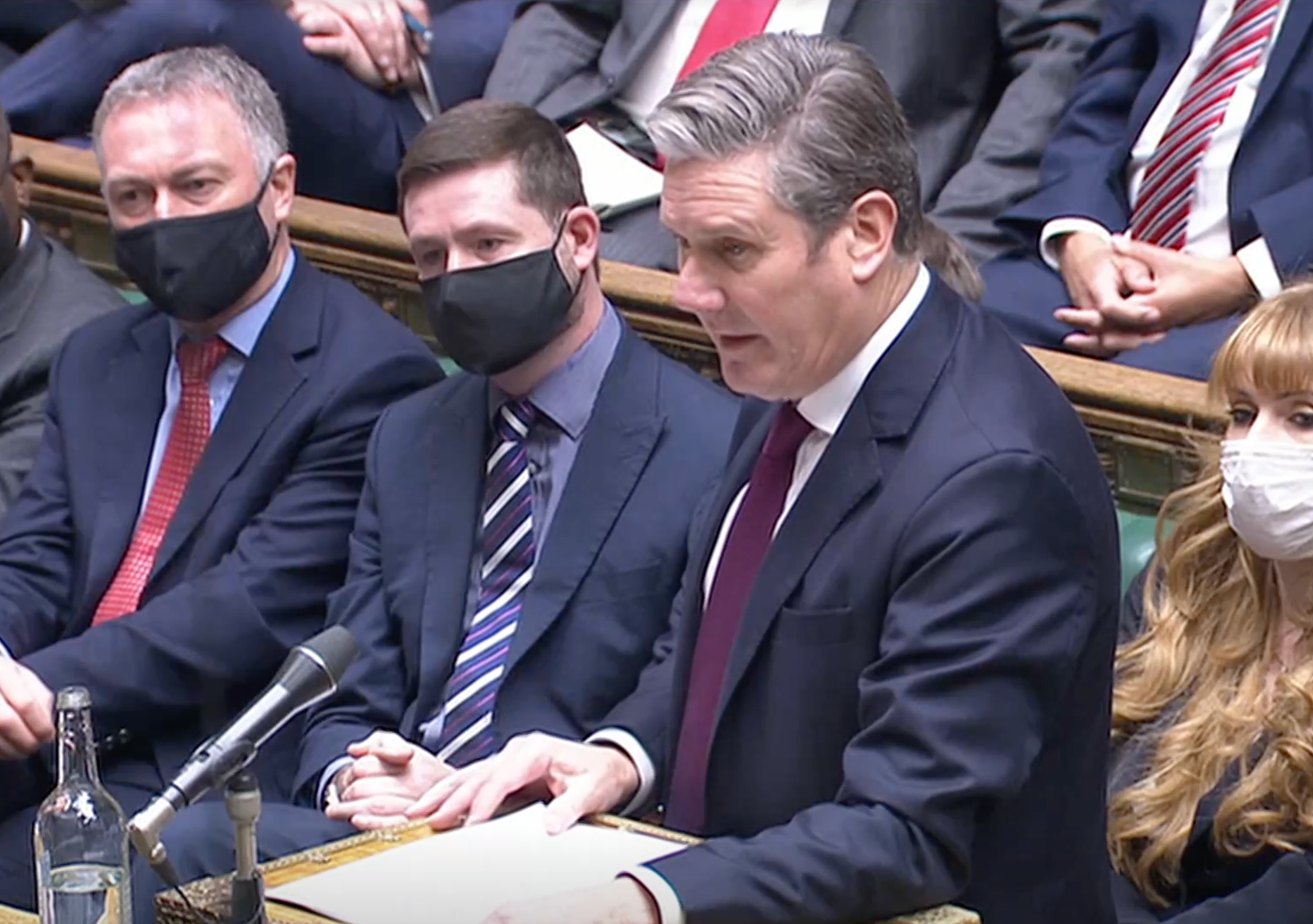Keir Starmer had one objective at Prime Minister’s Questions – and he succeeded
The Labour leader had to make the Tories look worse than Labour on standards, writes John Rentoul


Keir Starmer had one objective at Prime Minister’s Questions today, which was to resist the common assumption that “they’re all the same”. This is what matters politically in the furore over MPs’ standards of conduct. Last time, in the MPs’ expenses scandal under a Labour government, blame was spread about equally between both main parties; this time, the crisis has been started by the prime minister’s initial misjudgement over a breach of the rules by Owen Paterson, a Conservative MP.
Hence Starmer’s echo of Tony Blair, when two years before the 1997 election, he drew attention to the disarray of John Major’s party on Europe. “There is a difference,” said Blair. “I lead my party; he follows his.”
This time, Starmer said: “Here’s the difference: when somebody in my party misbehaves I kick them out.” He was referring to the case of Claudia Webbe, the former Labour MP found guilty of threatening to throw acid at a friend of her partner.
Some Tories had unwisely tried to suggest that Webbe’s case means there are occasional MPs behaving badly on both sides, but the contrast is striking. Starmer expelled Webbe as soon as the court found her guilty; Johnson whipped his MPs to vote to block Paterson’s punishment for paid lobbying – before he realised that he wouldn’t get away with it and U-turned.
Hence Starmer’s question: “Will he do the decent thing and just say sorry for trying to give the green light to corruption?” Johnson tried briefly to sound contrite. “It certainly was a mistake to conflate the case of an individual member, no matter how sad, with the point of principle, of a cross-party approach on an appeals process.”
As Starmer observed: “That’s not an apology.”
The rest of the exchanges were devoted to Johnson’s attempt to deflect attention by trying to ask questions of Starmer about the legal work he did for firms such as Mishcon de Reya before he became Labour leader. This provoked Sir Linday Hoyle, the speaker, to cut him off twice, saying it was Prime Minister’s Questions not leader of the opposition’s questions. The second time, Sir Linday said: “Prime minister, sit down. You may be the prime minister of this country but in this House I’m in charge.” Johnson hasn’t been spoken to like that since Nick Robinson told him to “stop talking” on the Today programme.
To keep up to speed with all the latest opinions and comment sign up to our free weekly Voices newsletter by clicking here
You could tell that Johnson knew he was in trouble, because he continued to clash with the speaker, using his next answer to say of Starmer: “His own Mishconduct is absolutely clear.” Sir Lindsay thought the word “misconduct” was against the rules and asked Johnson to withdraw it, giving the prime minister the chance to say, as if he were in year 11, that he hadn’t used it, and to repeat his “Mishconduct” joke.
Starmer himself had, less deliberately, fallen foul of the rules on what MPs are allowed to call each other. He had called the prime minister “a coward not a leader” for refusing to apologise, and he was forced to apologise himself, at the end of the session, for his unparliamentary language.
In both cases, though, breaking the rules was part of the theatre, as Starmer drove home the point that the Tories are more implicated in second jobs, conflicts of interest and an unwillingness to be bound by ethics rules. And he pointed out that Johnson himself was part of the problem: “He has been investigated by every organisation he’s ever been elected to.”
Johnson, meanwhile, used his clashes with the speaker to dramatise his defence. It wasn’t very convincing – Starmer gave up his minor legal work when he became Labour leader – but the prime minister’s back is against the wall and he has to fight with any weapon to hand.
He even engaged in a Greek rhetorical device, apophasis – saying he wouldn’t mention something as a way of mentioning it – in his answers to questions from Ian Blackford, of the Scottish National Party, who asked about the extraordinary coincidence by which Tory donors who have served as party treasurers seem to end up in the House of Lords. “I won’t comment on the missing £600,000 in the SNP’s accounts,” he said. By now, Sir Lindsay had given up reminding him who was supposed to be asking questions and who was supposed to be answering them.
But the opposition’s work was done. Standards of conduct in public life won’t decide the next election, and the fuss over MPs’ second jobs will reinforce many peoples’ low opinion of politicians generally – but what matters is that more of the mud sticks to the Tories than to Labour, as the governing party’s record is undoubtedly worse. Starmer can be satisfied that this point was made.






Join our commenting forum
Join thought-provoking conversations, follow other Independent readers and see their replies
Comments